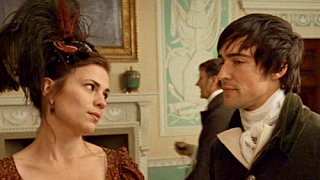Over the summer, I was lucky enough to do an internship for a few months with a small (but perfectly formed) publishing house back in London called Alliance Publishing Press Ltd. I worked for the most part on a book called 'Where Waters Meet', written by first-time author John Franks. I asked him a few questions about his novel, how he finds inspiration and for a few words of advice for budding authors. Find the interview below, or published on the website of 'The Palatinate', Durham University's official student newspaper. (View the original article here).
Where Waters Meet
3 OCTOBER 2013
 Where Waters Meet traces the interlocking tales of three brothers, whose extraordinary influence alters the town of Watersmeet on a scale of mythic proportions. Allhan emerges from the forest – naked, confused and struggling to remember the events which led to his expulsion from the community. Alaric and Alsoph, his twin brothers, vie for power in the interweaving chapters, as the book speeds towards its violent climax. Hannah Watson chats epics, editors and expectations with the author John Franks.
Where Waters Meet traces the interlocking tales of three brothers, whose extraordinary influence alters the town of Watersmeet on a scale of mythic proportions. Allhan emerges from the forest – naked, confused and struggling to remember the events which led to his expulsion from the community. Alaric and Alsoph, his twin brothers, vie for power in the interweaving chapters, as the book speeds towards its violent climax. Hannah Watson chats epics, editors and expectations with the author John Franks.
Hi John, thanks for chatting to Palatinate about your first published novel. Describe Where Waters Meet in five words.
Myth; Machinations; Love; Redemption; Revelation.
Your novel has echoes of the Game of Thrones series and Tolkien’s Lord of The Rings trilogy. In what way does Where Waters Meet provide something new and refreshing?
WWM isn’t a direct descendent of fantasy epics; it mixes a fictional seventeenth century with a more ancient myth. Like fantasy tales it includes a domineering leader, a ‘wise man’, an exotic princess, and a metaphysical strand, alongside more prosaic characters struggling with character flaws and trying to get beyond their personal prisons. I’ve left a bit of space for personal interpretation, an idea which was inspired by my reading ‘2001’ for the first time and trying to figure out ‘what the hell happened?’
The title holds a clue to the book’s finale – can you give us an idea of its significance?
The book was originally called Watersmeet, a village at the centre of the story, which stands at the confluence of two rivers. But Where Waters Meet cuts a bit deeper than that, because the idea of coming together runs throughout the book.
The beginning and closing chapters to the book had me gripped. Which was your favourite scene to write?
You’re right to suggest that some parts of a book are more fun to write than others. Anyway, I loved writing the Prologue because it gets quite deep into an attitude towards nature that is important to me. To pick out two more, the evening meal at the King’s Purse with four of the major characters was great fun to put down, and perhaps best of all, the domineering lead character Alaric’s escape from his house when being pursued by an angry mob.
What inspired you to put pen to paper?
It started with a short mythical story about the twins Alaric and Alsoph, the idea being to look at how two very different archetypal characters might influence a community, making mistakes through extremism, and how those mistakes could be redeemed. Redeemed is an old fashioned word, but the possibility of moving beyond our personal mistakes into a guilt-free state of fulfilment seems to me to be a common hope or desire. I wanted to suspend disbelief, make the two story types blend and read as if they were credible: I hope I’ve achieved that.
Why would students particularly enjoy Where Waters Meet?
You’re asking me: I’m over 50! But my mind hasn’t atrophied as fast as my body, and I think I can still connect with my younger self, and hopefully with younger people now. A confounding mystery is always compelling; some admirable and/or attractive men don’t hurt; a truly erotic, exotic woman usually grabs attention; we all expect some sex and violence in a story. Perhaps students are more aware today of the traps, ludicrous expectations, and disappointments of life in our society than even my generation was.
What advice have you got for Durham students seeking to publish their work?
Regarding writing, I need to know the last paragraph before I write the first. When I’ve got that lot I write intuitively from stepping stone to stepping stone, visualising each scene like a movie. When you have a manuscript, expect disappointment: publishers and agents are drowning in scripts. Then watch out for editing. Editors know what they are doing, and the challenges they throw at you can be very personally battering. But bite the bullet: every creative has a kick-ass pragmatic professional behind them. It certainly hurts the ego, but it’s essential. Then you need a damn good publicist, and engagement with social media promotion to get the book above the parapet: tens of thousands of novels are published in the UK every year; you have to find a way to get noticed.
Where Waters Meet is published by Alliance Publishing Press on 1st October 2013
Photograph provided by Alliance Publishing Press




























